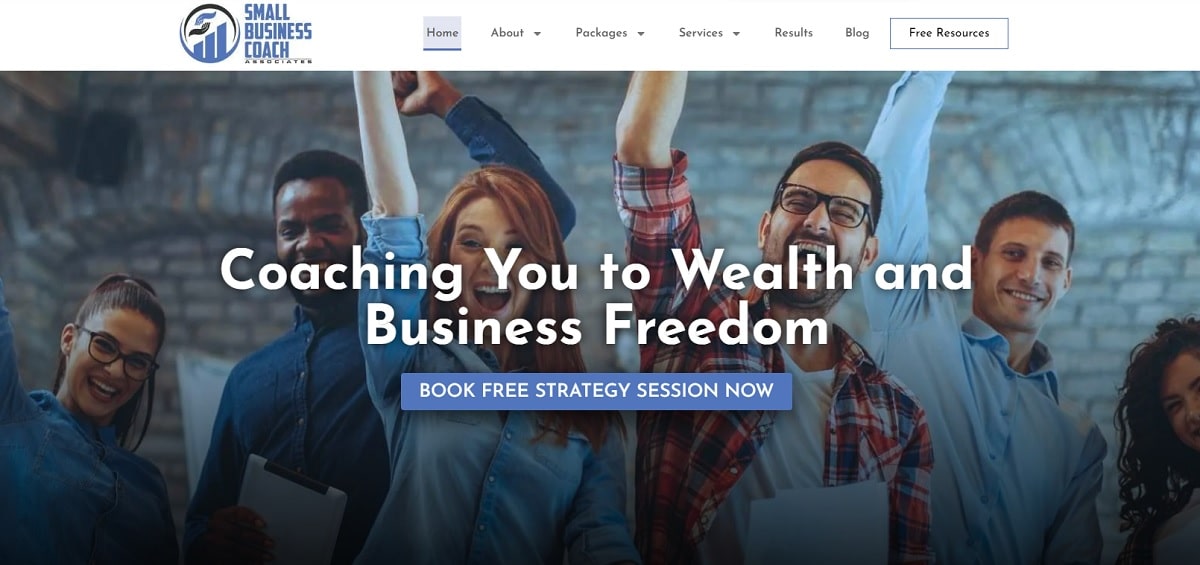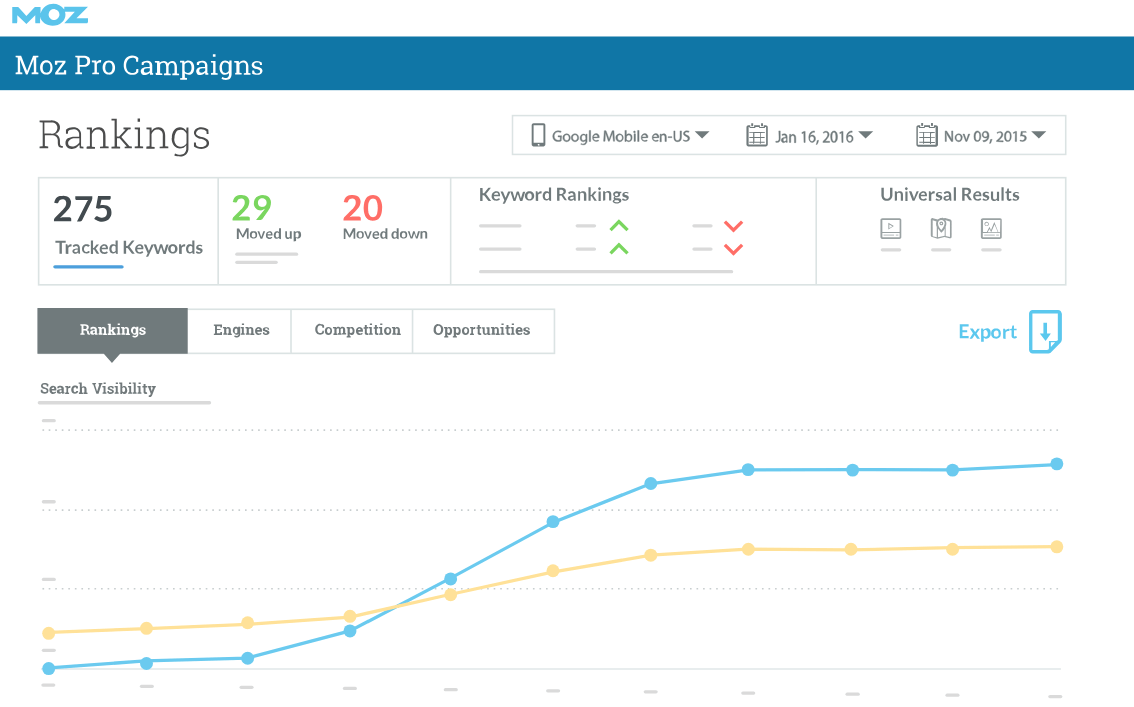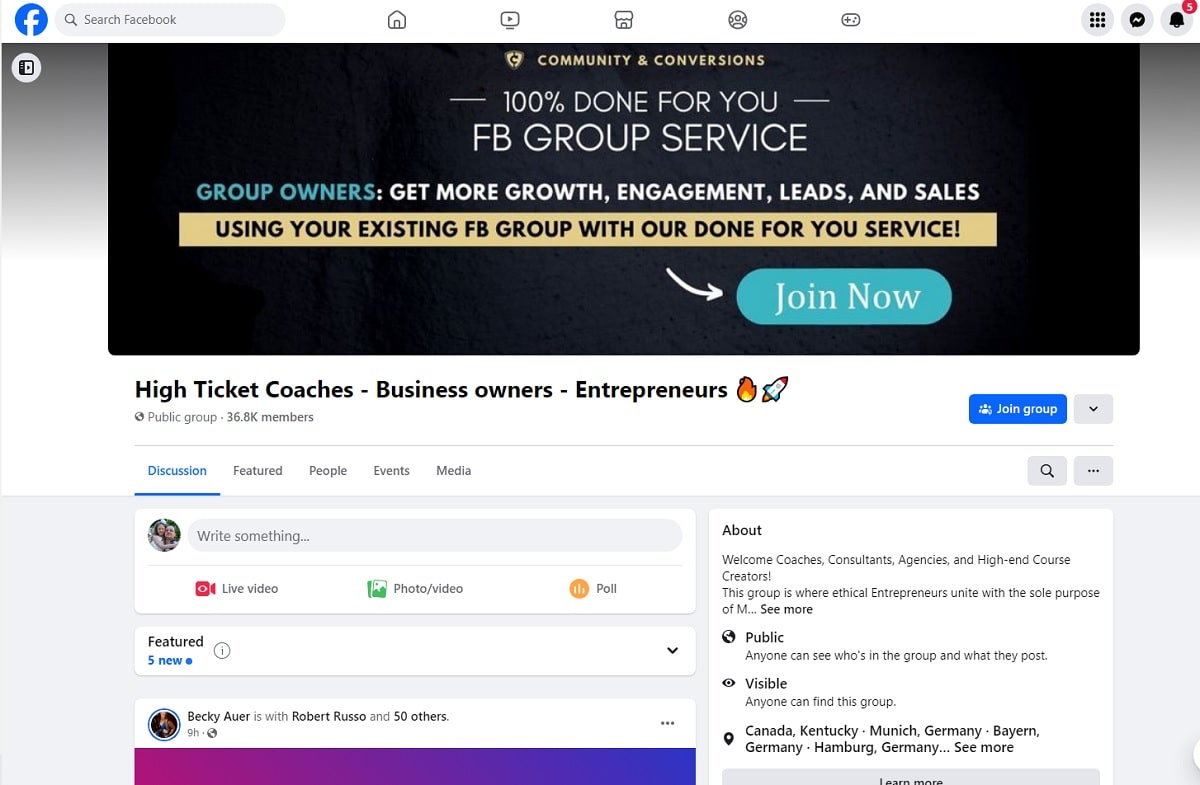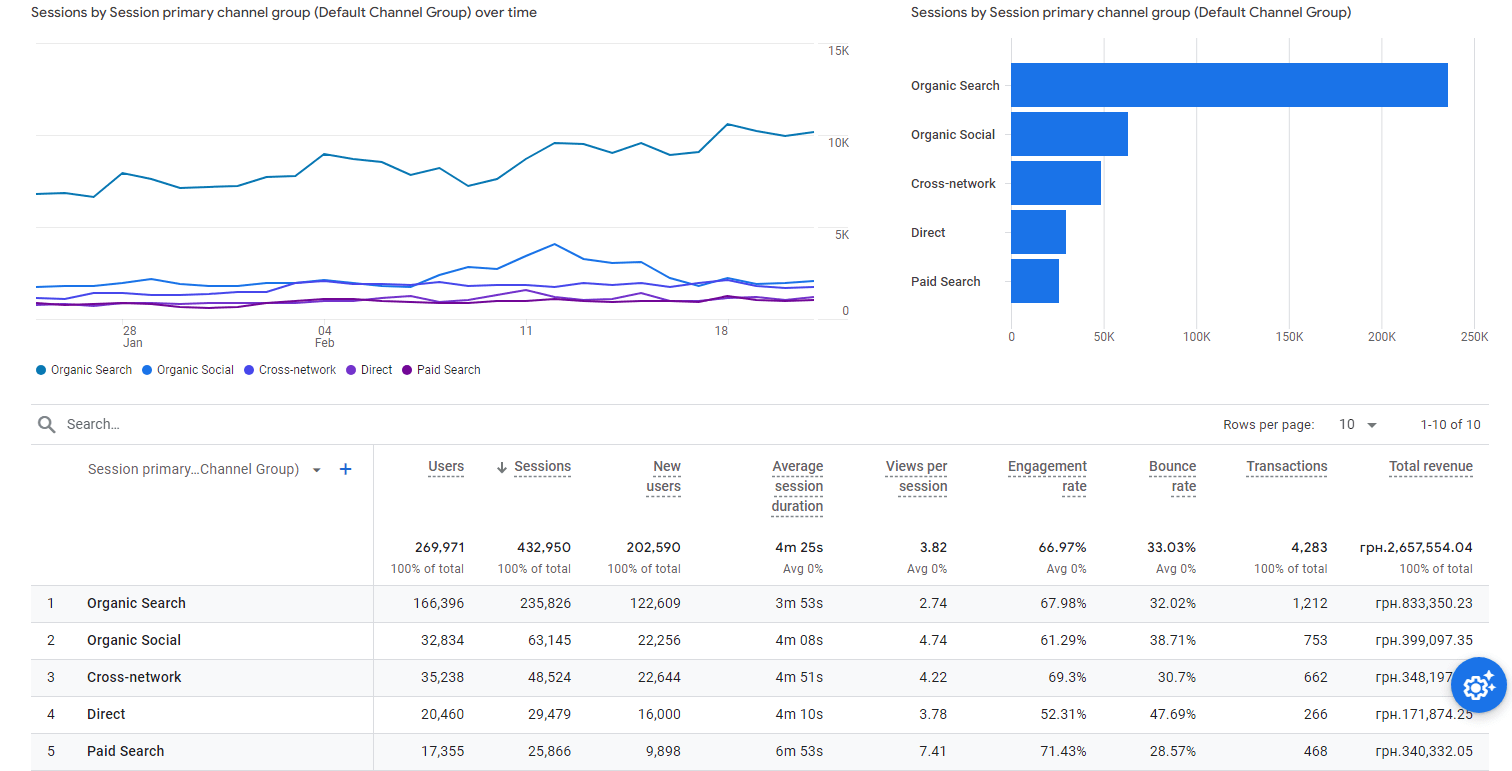Imagine SEO as a gym membership for your website: It is very important though people hardly pay attention to it. In today’s fast pacing world of coaching, being visible online is not a luxury but a boon. Guess what? This is where SEO comes into play as a superhero of your online presence. As far as coaches are concerned, SEO is not just about being seen but being found and sought after for life’s counsel and advice. As an authority in how to increase website performance, Plerdy has been there and done that. With these tips, this article will help you get started on SEO for coaching specialists and consider some starting points. Prepare yourself for a revolutionary change in your web presence!

Understanding the Basics of SEO for Coaches
At first glace, SEO might appear to be a complicated labyrinth, nonetheless, it’s the trail to prosperity for coaches. It is a process, a combination of creativity and techniques that would help your coaching website reach out to those people who may require your help. As with any new technique of coaching, it is helpful to know the basics when it comes to SEO – it can go a long way in improving your calling.
Key Components of SEO
SEO comprises three main components: There are three types of SEO namely the Technical SEO, On-Page SEO, and Off-Page SEO. Technical SEO is the optimization of different components of your site so that both you, and search engines, can find your site with ease. It’s, for instance, corresponding to preparing a friendly, perfect coaching environment. There you have it, website content optimisation is known as on-page search engine optimisation. This is similar to the process of ‘tuning in’ your coaching – making sure the content of your website targets what your customers are looking for. Off-Page SEO concerns the promotion of website through Services like social sites, guest posting columnists etc, same as expanding your coaching network.
Why SEO Matters for Coaches
SEO is essential for any coach as the purpose is to reach people who are in need of such services. Effective website optimization may boost the traffic and generate leads and give you consideration as an authority of the selected niche. It’s important to conceive of SEO as your virtual business card, which introduces you to people who are seeking your services.
If coaches do not SEO, then this is not just a marketing problem, it is also an issue of growth in an increasingly digital world. Staying basic lets your coaching services float to the surface and connect with the many who may require your services. So, if you are getting involved with coaching access SEO and you are going to see an increase in your network.
For more details about every aspect mentioned above, there are excellent resources available such as the Moz’s Beginner’s Guide to SEO.
Crafting an Effective SEO Strategy for Coaches

Developing SEO strategy for coaches is as complex and individual as designing the training program for a certain athlete. It is more or less about embracing one’s strengths within the context of the digital environment. In this Super-Coaches’ Ultimate SEO Guide, we will outline all the necessary steps to develop an SEO plan for your services that will help you stand out among millions of other coaches online
Identifying Your Coaching Niche and Keywords
Start your SEO adventure by choosing your coaching niche: personal trainer or any of the professional coaches such as a life coach, business mentor or the wellness coach to mention but a few. Here success depends on clarity in order to properly shape your SEO strategy. Thirdly, you need to check what people are typing in, you can use Google Keyword Planner or Ahrefs for this purpose. Try to choose those keywords that have enough monthly searches, however the competition for them is somewhat high. This is comparable to the optimal matching situation in coaching where you get to meet the needs of the client and also have fulfilling mode of operation. It’s our old friend the keyword that can attract the right audience to your digital doorstep.
Analyzing Competitors and Setting Goals
After you were done with the keywords, it is now time to do some research about the competition. There are literally tools like Moz or SEMrush that will be able to tell you what your competitors are getting right and what areas they are missing out on. Carrying out competitor analysis play a crucial role in setting tangible SEO targets and even standards for your coaching business. For whatever purpose that is being served by your SEO, be it website traffic, engagement, or search engine ranking, it is critical to establish defined objectives that will help you measure your progress.
Tracking and Adapting Your Strategy
It is therefore important to know that SEO is not a one-time or one-click affair. The process is never-ending but with constant effort and flexibility. Follow its performance by setting up the Google Analytics. Track such items as page page views, rates of bounce, and traffic from organic searches. This data will demonstrate best practice and areas that are lacking.
It should thus serve as basis for your plan. SEO is not a ‘one-time’ deal, but requires constant updates on trends and changes in the search engine algorithms. One of the key activities of an ongoing, vigorous, and thorough process of SEO optimization is content update, keyword fine-tuning, and overall improvement of the site’s user-friendliness.
Rafting an effective SEO strategy involves:Rafting an effective SEO strategy involves:
- Specialization of an individual coach.
- Conducting thorough keyword research.
- Analyzing your competition.
- Setting clear goals.
By following the above steps, an excellent and coherent online presence is fashioned that gets to the relevant customer and impacts them. Things change with time hence the need to constantly follow the market. Coaching business can therefore succeed in the digital environment as this article seeks to explain in detail.
If you want to get more detailed and up-to-date information, it is safe to use such sources as Neil Patel’s blog or Search Engine Journal, which provide detailed recommendations and the latest SEO tips.
SEO Content Creation for Coaches

Think of your SEO content in the role of a lighthouse that helps the potential clients navigate through the vast ocean of information to get to your coaching services. To put it in coaching context, your words do not only constitute what is being ‘delivered’, they are the link between you and those in need of coaching. Now, it is time to go further into creating effective SEO content for coaches and making sure your message will be heard.
Blogging and Article Writing
The most critical element in your SEO campaign is blogging. Your blog is by no means limited to the sharing of new ideas, it is a tool for answering your target audience’s concerns and dreams. Start with audience-friendly subjects. This could be from ‘Dealing with Career Demoralization’ to ‘Practical Ways to Practice Mindfulness’. To identify the questions that your potential clients are likely to ask we use tools such as Answer The Public.
While writing ensure that your posts contain your targeted keywords but should not seem like a copy was pasted. Incorporate keyword specific to a particular topic in the title, header and the content without making it too stiff. Quality trumps quantity. Depending on your articles, people should be able to get some sort of value, tips, analysis, even your experience in coaching and so on. Relevant, credible, and high-quality material will get a better rank in the search engines while providing a learning statement of your authority as a coach.
When it comes to refining your approach to blogging, pages such as HubSpot provide inestimable material on creating and improving your content.
Using Multimedia Effectively
It has become imperative for any content marketer to include multimedia into their content marketing efforts in the present century. That raises the question, how the firm can increase engagement and reach through the use of videos, podcasts, and webinars? For example, make short inspirational video clips or record podcasts with professionals in your field of law. These formats are appealing and let you make more of your coaching style and bench warmer’s persona.
Increase the level of multimedia relevance by tagging your videos, and podcast with the relevant keywords to the title, description and transcript respectively. You Tube is an example and is not just a place for hosting videos but it is a search engine that can bring traffic to your site. Don’t forget to put links to your website to guarantee that viewers or listeners will receive more comprehensive information or may seek your services for coaching.
Such enriched content on your website can increase click-through rates, reduce bounce rates, and prove to the search engine frameworks that your site is worthwhile.
It is the role of an SEO content writer as a coach to incorporate the knowledge about the profession into creating useful content with targeted keywords and different types of media. That way, one fosters a high-quality web identity that gets good rankings for search and keeps in touch with and assists possible clients. Do not be afraid of the witty words and multimedia; make them the means that enhance your coaching practice in the modern era.
Effective SEO is not a destination to achieve but actually a process which requires constant effort. Strategically and systematically update your existing content plan, inform yourself on emerging trends and never lose sight of your audience’s wants and needs. This way Moz ensures that you stay updated with the progression in SEO, your content is highly influential.
Leveraging Social Media for SEO

Social media: digital coaching is not merely a tool to connect people but it is an influential tool to enhance SEO. Therefore, understanding the dynamics of the social media landscape can help in boosting the flow of traffic to your website and also improve on the SEO plans in place. Now it is time to speak about how coaches can use the potential of social media platforms to help them improve their SEO strategies.
Optimizing Social Media Profiles
Posts about coaches belong to the web presentation of your brand and can positively influence SEO. Ensure that, the details you enter under the respective profiles are concise and professional. Also use keywords in the bio and description sections: this will help to increase the item’s visibility. For example, if your niche is life coaching, then you may label the video using word like life transformation, personal development, mindfulness coaching among others. It supports the efforts of tuning your social accounts with the search terms your audiences use.
Choose those that appeal to its audience, Those to create awareness to the target audience. LinkedIn is good for professional and business coaching purposes while Instagram may be better suited for lifestyle and wellness coaching. Again, there are differences in each platform and the number of users that may engage to it, so placement must be well-thought.
Content Strategy for Social Media
The principles of traditional marketing are still true, especially bearing in mind that content is king also in social networks. Your posts should serve as a call to action which is encouraging the followers to visit your website. Post links to your blog posts, graphics that include helpful info, customers’ feedback and short videos. Hashtags prove useful when you want to promote more of your content or make your content easily searchable.
Engagement is crucial. Answer the comments, engage in the relevant threads, and commenting is active. This approach helps to make links and also informs search engines that your content and profile links are credible.
You can even monitor your social media content with the help of Google Analytics to know how many people visit your website.
Using social media for link building is not simply about posting messages to your social profiles daily, it is about building a social media presence that will engage people and draw them to your website. There are ways that can help you enhance SEO that has an impact on your coaching brand and they include optimizing the profiles, creating the structure and engaging the audience.
Social media is here and is constantly evolving – it should become one the main components of your overall SEO strategy. For further information about utilizing social media and SEO, refer to Social Media Examiner which provides many tools and guides according to the current trends and updates.
Measuring and Analyzing Your SEO Performance

For coaches in the SEO world, it is crucial to know well on how to measure and analyze your results, is like having a map to your success. All of this is not only about reaching the end – as important as that is – but also about knowing the road and the journey and what you have and haven’t accomplished in that constantly shifting process, and being able to adjust, even when things are difficult. Let us quantify the effects of SEO and then share them with you in order to be sure your efforts are not a mere shot in the dark.
Utilizing Analytics Tools
It is impossible to overstate the importance of letting a tool like Google Analytics to help you in measuring the success of your SEO. They give lots of information about the traffic to your Website, the behavior of the visitors and where they are getting the Links to access your site. Organic search traffic, the bounce rate, average time spent on the site per session, and number of pages viewed per session. By preparing this particular data, you know what is effective and what is not; it is almost like the coach evaluating his coaching techniques.
It is important that much focus is accorded to the keywords that are typically directing visitors to your site. Are they relevant to the chosen or targeted keywords? For instance, there is the SEMrush tool which can give you details on your website organic keywords and their ranking. Boosting SEO and developing the Presence of the coaching brand is as easy as fine tuning profiles, creating relevant content, and engaging the audience.
Evaluating Content Performance
Content is considered to be an important pillar that should be incorporated in your SEO strategy. Check with your analytics to determine which content pieces are doing well for you. For this, one needs to analyse raw data such as the number of times the page was viewed, the time spent on the page, number of shares on social media accounts. That way this evaluation tells you what content is popular with your target audience and deserves more focused investment.
It also discusses the use engagement on your site and many more. Are your call-to-actions effective? Are visiting customers transforming to leads or customers? Other tools such as Hotjar can allow you to get a heat map and user recordings and therefore understand the extent of user engagement with the content.
It is advisable to monitor and assess SEO performance on sites with increased frequency while paying attention to details and having understanding of analytics. It’s about how to improve and remould your decisions based on the data. Stay focused on this process, and you will find a significant enhancement in your SEO rankings that will lead to more traffic on your coaching services.
SEO takes time and should not be confused with a one day or one week race. Contingent updates and evaluations are necessary to ensure that the firm is always a step ahead especially in the ever-growing digital coaching market. Some more detailed analysis techniques could be helpful to look through such sources as Moz’s Blog – a website that provides readers with SEO professionals’ experience in analyzing SEO trends and analytics tools.
Common SEO Pitfalls to Avoid
Coaches can find themselves lost in the sea of SEO and at times it can be like working in a minefield. Just a wrong move and the efforts you put in could be a disaster which has a tendency to hinder the growth and popularity of the website. It is essential to be knowledgeable of the standard SEO mistakes so as not to ruin your online/print campaign. It will do more harm than good so let’s highlight these traps to help your SEO endeavor be as efficient as possible.
Overlooking Mobile Optimization
In essence, one of the biggest mistakes that a website owner can make today is not to have a website that is mobile ready. Such sites are non-responsive and result in bad user experience and high bounce rates negatively affecting search engine rankings. For example, it is possible to use Google’s Mobile-Friendly Test in order to check whether your site is responsive enough.
Ignoring Local SEO
Thus, for the coaches who provide their services in certain areas, local SEO is a treasure trove. Local SEO abandonment leads to losing the biggest chunk of your traffic. Knowing your region, ensure that your business is listed in the directories and Google My Business and then use the keywords relevant to the region.
Overusing Keywords
It also becomes possible to reap severe search engine penalties when working with keywords to enhance the content quality. However, it should be natural, and the usage of keywords should be organic while writing the content which is beneficial to readers.
Forgetting About Quality Backlinks
When choosing backlinks quality is better than quantity. Another mistake is the pursuer of a large number of backlinks without thinking about their relevance and quality. The quality of backlinks should also be considered: it is better to gain references from reputable and authoritative sites of related topic. The advantage of Ahrefs is that it can determine whether the backlink is good or bad.
Neglecting Regular Content Updates
SEO is not a ‘set it and forget it’ activity. Periodic updates help to revise the contents so that they are more relavant. The fact is that when the material is outdated, it reduces the site’s ranking and significance in the eyes of a visitor.
Coaches must avoid these when making SEO related decisions if they want to get better results. The optimization of mobile website, local SEO, the use of appropriate keywords, the quality of back links and content update of pages can all impact SEO.
As for SEO it is a process which involves a consistent approach and the continual update of knowledge regarding the existing strategies. But here we have identified some mistakes to avoid when it comes to your online coaching presence: If you want to know more about SEO and what is recommended or what is lacking then it might be helpful to visit Search Engine Journal for more updates about SEO.
Conclusion
Thus, coaches who are familiar with the peculiarities of SEO will effectively discover the gate to success. Coaching voice does well when it is combined with the SEO that guides you in reaching those who need your expertise so much. SEO is a process, a learning process also, that will never end. ” If you liked this information, continue exploring the articles of Plerdy that contain all the essential knowledge about digital marketing. For more particular ways to boost your website’s performance, turn to Plerdy with their full arsenal of options. They are meant to enhance your online podium so that your coaching massage goes viral. Follow this path with Plerdy and it will help you to start your successful SEO story.
